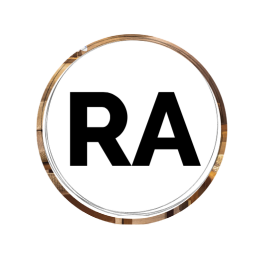Walmart continues to invest in Jetblack, because the future of shopping is voice controlled
In this episode:
◇ Jetblack, the personal shopping service available to consumers via text, is losing $15,000 per member annually. But Walmart continues to invest in the company as an R&D expense as it looks to build its future capabilities.
Jetblack, the personal shopping service available to consumers via text, is losing $15,000 per member annually. That result seems incredible. The company was founded inside Walmart, shortly after the retailer acquired jet.com, as a research and development project. Walmart spends $60 million annually on Jet-black, which may be justified when you consider the retailer may be using it as a way to build their own automated personal shopping service. They see the future as voice-activated, not in the search bar.
Jetblack has 600 active members, some paying membership fees as high as $600 each, giving them the ability to order anything except fresh food via text message for fast delivery.
The company loses money because the service promises customers the lowest available cost on the product, and Jetblack is often purchasing the ordered merchandise from other retailers at a higher price. The Jetblack concierge does this so customers can get their deliveries quickly - the reason to use the service. So, the supply chain build-out is missing. But Jetblack is prioritizing customer needs: quick shipment and low cost.
The delivery and product ordering processes are mainly manual at this stage. Walmart is looking to partner with more retailers and use their own supply chain for the service.
Jetblack hired Jenny Fleiss, co-founder of Rent-the-Runway for the long road ahead to automation. But Walmart is also shopping around for a buy-out, which will likely mean Fleiss is out. She said it would be five to seven years before the system is less reliant on humans.
I wanted to emphasize why I think Walmart's investment in R&D through JetBlack is so essential - because the future of shopping, at least part of it, lies in voice, not in search.
The solar panels on the roof of Target’s distribution center in Phoenix
◇ Target will have solar panels on more than a quarter of it's stores in a month. They’ve ranked #1 again on the Solar Means Business Report.
Target is so serious about being viewed as a friend of the planet that by November, the company said, it will have erected rooftop solar panels on 500 of its stores in the United States. That's more than one-quarter of its total 1,855 stores.
Target also has ranked No. 1 in on-site solar capacity for three years in a row in the Solar Energy Industries Association's Solar Means Business report, a survey of corporate solar users.
Over the past decade — under pressure from customers, shareholders and employees — Target's retail future is morphing from a red hue to eco-green. Big Box stores are perfect structures to house solar panels. Let's hope we see more of them.
◇ Shiseido acquires clean beauty and skincare Drunk Elephant, a brand that has grown to $100 million annually.
After months of speculation, Shiseido announced Tuesday that it signed a deal to acquire a 100 per cent stake in "clean beauty" brand Drunk Elephant, in a transaction valued at approximately $845 million. The move is the latest step in the Japanese beauty company's push to become a more prominent player with a global footprint.
Drunk Elephant was founded in 2012, Tiffany Masterson and pioneered the clean beauty movement. It saw exponential sales growth, with estimates putting its net sales for 2018 close to $100 million.
Masahiko Uotani, Shiseido's president and the chief executive officer, spoke highly of the engaged and loyal customers Drunk Elephant has - and their fun, curious, clean, approach.
Masterson emphasized the shared values between Shiseido and Drunk Elephant in a statement put out for the deal. She said, "most importantly an unwavering commitment to the consumer. I chose a partner who will let the brand continue to be itself, with the same formulations and the same team."
There's no question that clean is important, but it's not enough. Drunk Elephant is much more than only clean - it's effective, proven by its success at Sephora.
Drunk Elephant avoids what it calls the "suspicious six" — essential oils, drying alcohols, silicones, chemical sunscreens, fragrance and dyes, and SLS.
Shiseido has previously ranked fifth on the WWD Beauty Inc. Top 100 list had been mainly focused on tech acquisitions, though it added Laura Mercier in 2016 and invested in Violet Grey in 2018.



